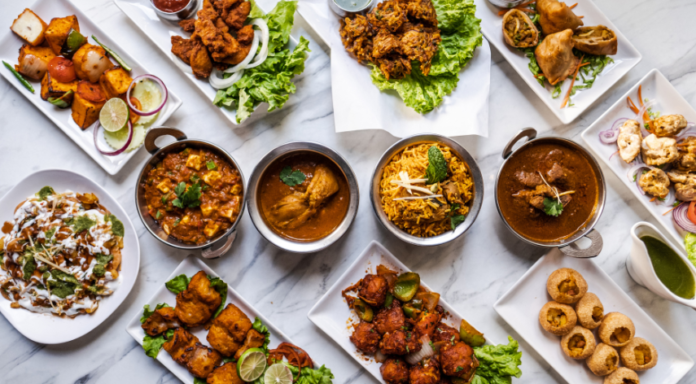In current years, there has been a welcome resurgence and party of indigenous cultures, not only for their particular traditions and languages however additionally for their incredibly various and nutritious cuisines. One such gem of indigenous gastronomy this is slowly however really finding its way into the mainstream is ‘Taquicha’. This conventional meal of the Chibchan people isn’t always just a dish, however a gateway into the deep heritage and philosophies surrounding native foods. In this comprehensive exploration, we dissect the essence of Taquicha, its importance, and how it is turning into a symbol of cultural upkeep and modern cuisine.
Understanding the Legacy of Taquicha
The time period ‘Taquicha‘ refers to a culinary subculture cherished by way of the Chibchan humans, indigenous to regions of Panama, Colombia, and Costa Rica. It is a centuries-vintage practice that has sustained and nourished those communities, passed down through generations from the age in their ancestors. Rooted in careful cultivation, Taquicha carries substances that had been traditionally primary to their manner of existence, recognizing and honoring the bounty of their lands in a unified culinary experience.
The Ingredients That Define a Taquicha
At the heart of a Taquicha ceremonial dinner are components including corn, beans, squash, and diverse varieties of tuberous roots. These staples are often referred to as ‘the 3 sisters’ in indigenous agriculture for his or her symbiotic boom styles. Additionally, the use of wild herbs, plants, and game adds depth and a seasonal rationalization to the meal, accounting for a harmonious mixture of taste, sustenance, and religious connection.
The Preparation Process
The training of Taquicha is a ritual that starts offevolved with the selection of each component. Understanding the indigenous agricultural calendar and the significance of crop rotations is vital. The meal, regularly organized communally, is a slow and aware process that takes its cues from the natural order, respecting the interconnectedness of all dwelling things.
Modern Adaptations and the Preservation of Indigenous Cuisines
In the modern-day culinary panorama, there is an growing desire for authenticity and a go back to ‘rooted’ ingredients—those that have a sizeable cultural heritage. For the Chibchan people, this call aligns with their commitment to preserving their dietary traditions and the threats posed with the aid of cultural homogenization. It is on this space that Taquicha is evolving, offering a bridge between the beyond, present, and future.
The Contemporary Gourmet Taquicha Movement
There is a burgeoning gourmet Taquicha movement, wherein cooks are taking the traditional foundations of Taquicha and infusing them with modern-day culinary strategies and regional impacts. This not best makes those flavors on hand to a wider target audience but additionally ensures that the center essence of the delicacies stays celebrated and intact.
The Role of Culinary Innovation
Culinary innovation is key to the survival of traditional cuisines. Chefs and food fanatics are exploring new methods to supply, put together, and gift indigenous foods. The innovative reimagining of Taquicha isn’t most effective a nod to its past however additionally an exciting imaginative and prescient for its future—a future that mixes admire for culture with a spirit of innovation.
Cultural and Socioeconomic Implications
The revival of Taquicha has cultural and socioeconomic implications that make bigger beyond the world of food. It is a story of resilience, identification, and delight, serving as a tangible hyperlink to the past and a beacon for cultural survival.
Nourishing a Sense of Identity
Indigenous cuisines like Taquicha are rich with symbolism and meaning. They offer those within the network a feel of identity and belonging, and those outdoor, a window right into a global of lifestyle and subculture. In an increasingly homogenized global, dishes like Taquicha serve to underscore the variety of human experiences.
Fostering Economic Empowerment
The developing appreciation for indigenous cuisines gives an monetary possibility for the groups which have traditionally been its stewards. Through sustainable tourism and the commercialization of conventional meals, there’s capability for monetary empowerment, letting them keep their tradition on their very own phrases.
The Way Forward: Integration and Education
The path ahead in the maintenance and birthday party of indigenous foods is thru integration and training. It is ready finding an area for those traditions within the larger framework of the culinary international even as respecting their forte.
Integrating Indigenous Foods inside the Culinary Domain
Integrating Taquicha and other indigenous foods into mainstream culinary practices does not suggest dilution; it manner elevation and popularity. By weaving these elements into the material of world delicacies, we have a good time their really worth and make sure they’re carried forward.
Promoting Education and Awareness
Educating the general public approximately the price of indigenous meals is key. It entails sharing their tales, dietary advantages, and the significance of sustainability. With recognition comes appreciation, and with appreciation comes the preference to support and defend those foods and the cultures they represent.
In Conclusion: The Gastronomic Voyage of Taquicha
The story of Taquicha is a profound one, no longer just for its area within the culinary international however for the cultural and non secular issues interwoven into its very material. By recognizing and celebrating the foods that sustained our ancestors, we honor the human ingenuity, adaptability, and interdependence that have continually been our strengths. As we keep our gastronomic voyages, might also we achieve this with the awareness to comprehend the stories our ingredients inform and the obligation to make certain they preserve to have a place at our tables.


